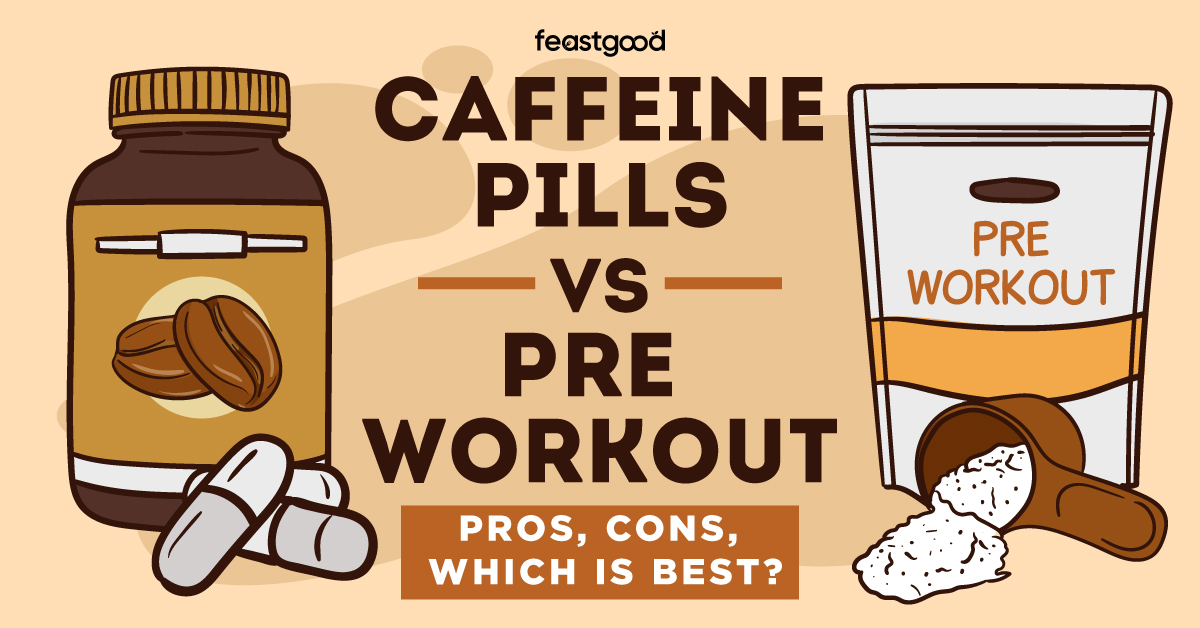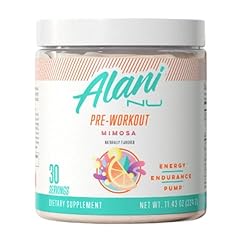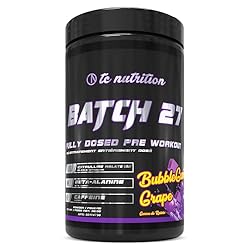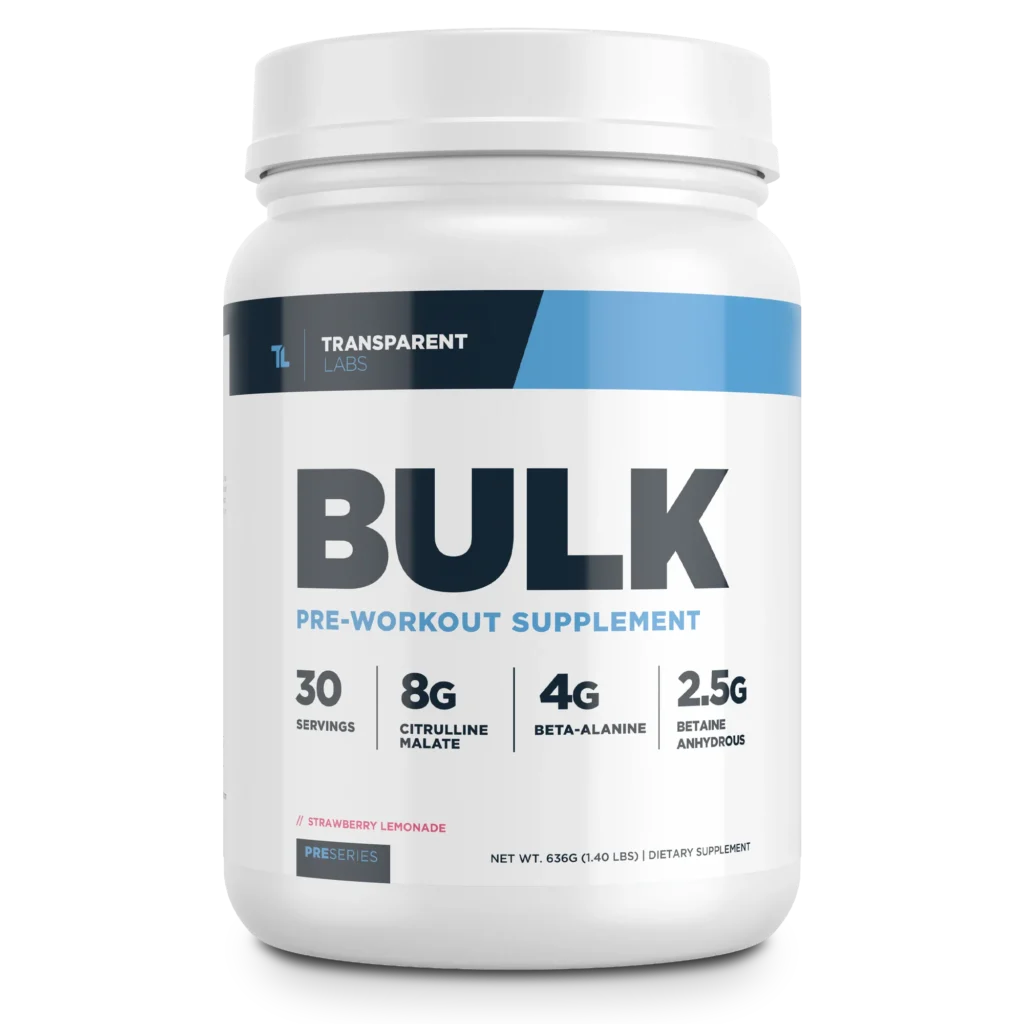Some links in this article are affiliate links, which means we earn from qualifying purchases. Learn more.
Caffeine pills and pre workout supplements share one key similarity: they both increase energy. But that’s about where the list of commonalities ends. The list of differences, on the other hand, is much longer and can have significant impacts on your training.
The key difference between caffeine pills and pre workouts is that pre workouts come in a variety of formulas with ingredients like creatine and beta alanine to improve strength and endurance. As a result, pre workouts tend to have more side effects (harder on the digestive system) and are more expensive.
As the manager of a supplement store, people come in daily looking for the best strategies to optimize their workouts and results. Not understanding the difference between caffeine pills and pre workouts could result in you using a strategy that is not optimal for you, and missing out on results in the end.
In this article, I’ll cover:
- A list of the differences between caffeine pills and pre workout
- My experiences taking caffeine pills and pre workout
- The benefits and drawbacks of caffeine pills and pre workout
- Who should take caffeine pills
- Who should take pre workouts
- Which is better: Caffeine pills or pre workouts
7 Differences Between Caffeine Pills vs Pre Workout
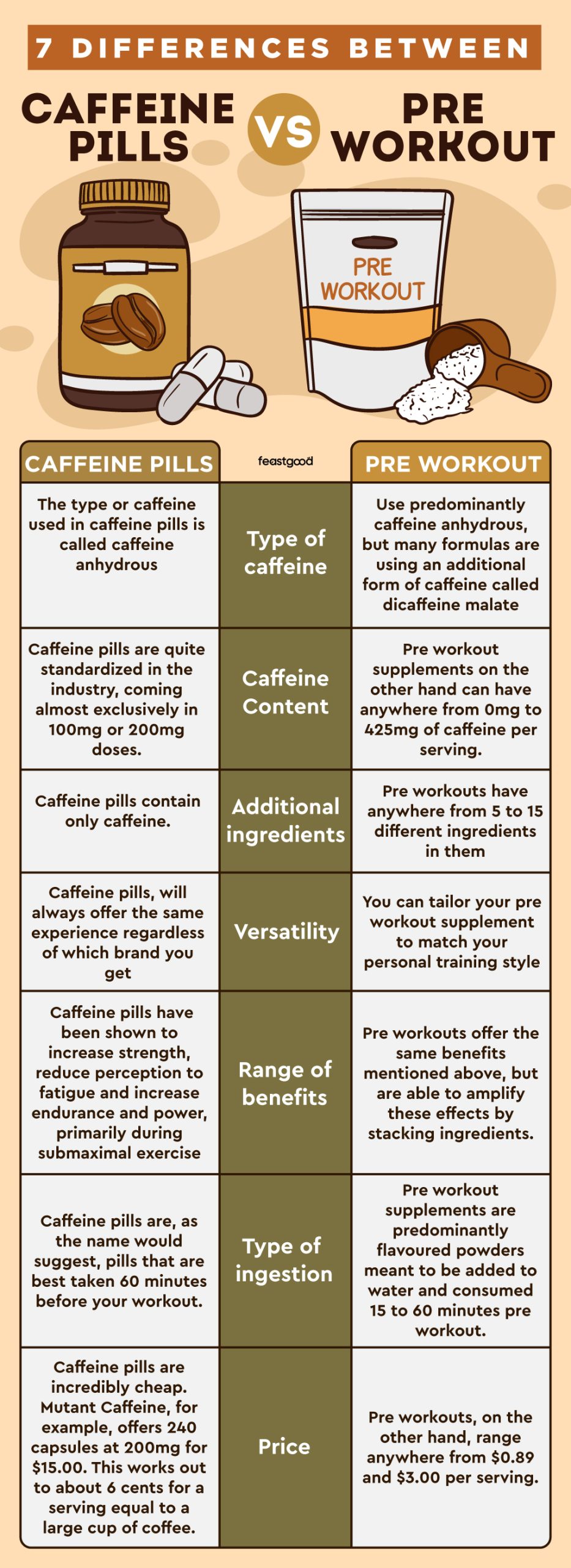
The 7 differences between caffeine pills and pre workout are:
- Type of caffeine
- Caffeine content
- Additional ingredients
- Versatility
- Range of benefits
- Type of ingestion
- Price
1. Type of Caffeine
The type or caffeine used in caffeine pills is called caffeine anhydrous. Caffeine anhydrous reaches peak concentration in the body after 1-2 hours, with an approximate half life between 2.5 and 4.5 hours.
This means that 2.5 to 4.5 hours after ingestion, the concentration of caffeine anhydrous in the system is reduced by 50%.
Pre workout supplements also use predominantly caffeine anhydrous, but many formulas are using an additional form of caffeine called dicaffeine malate.
This form of caffeine has a half life between 5 and 7 hours, meaning it takes longer in the body to reach peak concentration levels, and its effects last longer.
Because of their different half-life properties, the combination of caffeine anhydrous and dicaffeine malate in pre workout supplements can negate the problem of caffeine crashes which can happen when taking caffeine anhydrous on its own.
If you are someone who notices a significant energy crash after taking caffeine pills or pre workout, try a formula that has both forms of caffeine.
- Related Article: Pre Workout vs Intra Workout: Do You Need Both?
2. Caffeine Content
Caffeine pills are quite standardized in the industry, coming almost exclusively in 100mg or 200mg doses. Pre workout supplements on the other hand can have anywhere from 0mg to 425mg of caffeine per serving.
For reference, a fast food restaurant small (12-oz) cup of coffee has around 140mg of caffeine and a large (20oz) has around 270mg.
- Related Article: Pre Workout vs Pump: Differences, Pros, Cons
3. Additional Ingredients
The most obvious difference between caffeine pills and pre workout supplements is found in the ingredient panel.
Pre workouts have anywhere from 5 to 15 different ingredients in them, where caffeine pills contain only caffeine.
Common additional ingredients found in pre workouts include BCAAs, creatine, taurine, glycerol, citrulline, and beta-alanine.
These extra ingredients in pre workout will offer a variety of added benefits including increased strength, force, and endurance.
- Related Article: Pre Workout Before Running: Is It Good or Bad
4. Versatility
Because of the variability in caffeine content, as well as the infinite combinations of ingredients, pre workout supplements are a lot more versatile than caffeine pills. You can tailor your pre workout supplement to match your personal training style.
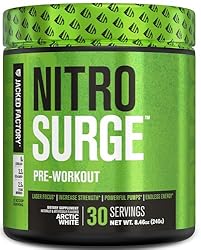
For example, a product like Nitro Surge by Jacked Factory has a formula that compliments endurance training with ingredients like beta-alanine, which reduces the lactic acid build up in your muscles.
Believe Supplements Pump Addict, on the other hand, has a formula that favours muscle gain with high doses of ingredients like leucine, which helps to increase muscle protein synthesis (i.e. muscle growth).
Because pre workout supplements come in stimulant-free formulas, they also provide an appealing option for people who workout in the evening and don’t want their pre workout to have a negative impact on their sleep.
Caffeine pills, on the other hand, will always offer the same experience regardless of which brand you get.
5. Range of Benefits
Caffeine pills have been shown to increase strength, reduce perception to fatigue and increase endurance and power, primarily during submaximal exercise (exercise where your heart rate stays below 85% of your maximum heart rate).
These benefits seem to be due primarily to caffeine’s ability to reduce feelings of perceived exertion. Perceived exertion refers to how hard you feel your body is working, meaning that caffeine allows you to train longer or harder without feeling like you’re working harder.
Pre workouts offer the same benefits mentioned above, but are able to amplify these effects by stacking ingredients. For example, pre workouts can offer additional ingredients to help with strength (e.g. creatine, BCAAs), endurance (e.g. beta alanine), and power (e.g. Alpha-GPC).
Pre workouts can also contain ingredients to offer additional benefits like increasing muscle mass (e.g. HICA, Leucine), blood flow (e.g. citrulline), mental focus (e.g. theanine, DMAE), increasing testosterone (e.g. forskolin), and reducing jitteriness (e.g. rhodiola, theanine).
- Related Article: Pre-Workout At Night: How To Take Without Negative Effects
6. Type of Ingestion
Caffeine pills are, as the name would suggest, pills that are best taken 60 minutes before your workout. Pre workout supplements are predominantly flavoured powders meant to be added to water and consumed 15 to 60 minutes pre workout.
There are a few pre workout options that are available in pill format, but this isn’t typical because the serving size would require people to take 6 or more pills at a time which, from customer feedback, isn’t a pleasant experience.
7. Price
Caffeine pills are incredibly cheap. Mutant Caffeine, for example, offers 240 capsules at 200mg for $15.00. This works out to about 6 cents for a serving equal to a large cup of coffee.
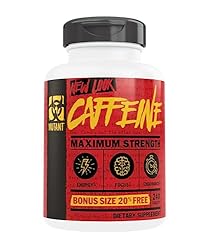
Pre workouts, on the other hand, range anywhere from $0.89 and $3.00 per serving.
Caffeine Pills
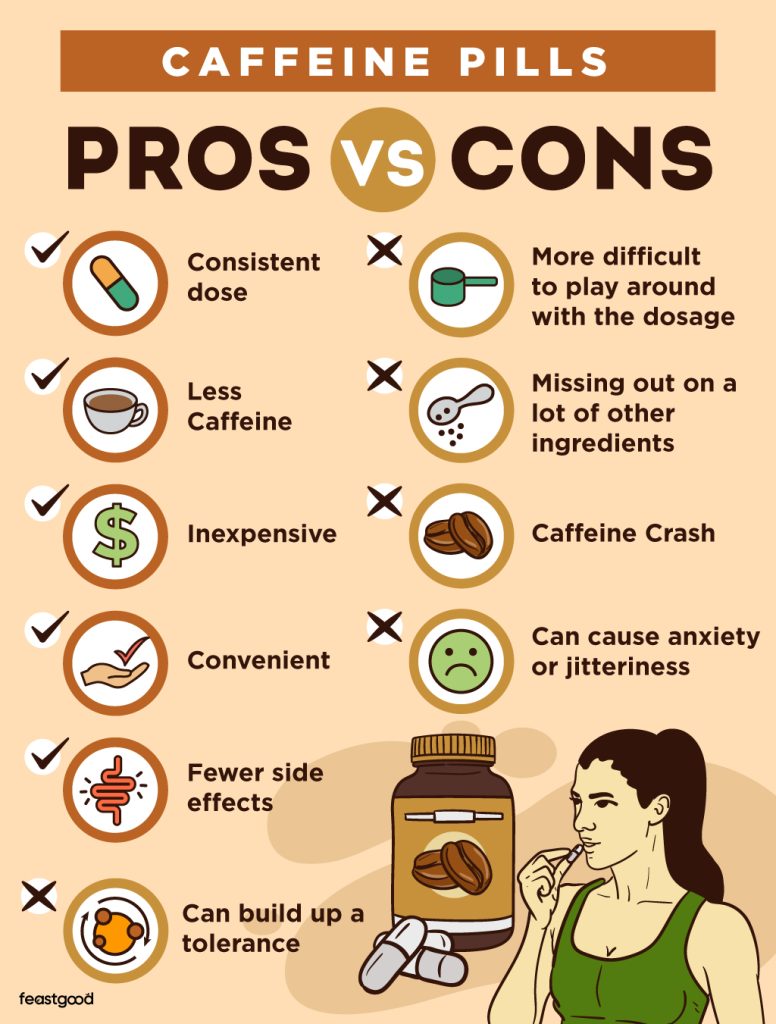
My Experiences Taking Caffeine Pills Before A Workout
Having worked in the supplement industry for a decade and in the fitness industry for over 15 years, I’ve had the opportunity to experiment with all sorts of pre workout and training strategies.
I have gone through all kinds of different training styles including playing competitive hockey, powerlifting, crossfit, boxing, marathon and obstacle course running, as well as training through two pregnancies. Suffice to say I have tried nearly every combination of pre workout supplement and training strategy possible.
Caffeine pills are the reliable energy strategy that I can always count on. They offer a decent energy boost and don’t cause any nausea or skin tingling. (I happen to be incredibly sensitive to ingredients like beta-alanine which cause a skin tingling sensation).
I do find that the effect from caffeine pills is more noticeable during endurance activities such as long distance running or athletic competition (like a hockey game), versus when I am training for strength or power.
Caffeine is also considered acceptable for pregnant women up to 200mg/day, while most of the ingredients in pre workout supplements are either unsafe during pregnancy and while breastfeeding or have no available data.
For this reason, I was able to use caffeine pills as pre workout during my pregnancies and especially postpartum when I wanted the energy boost.
Benefits
Consistent Dose
Because caffeine pills are offered in a standard dose of either 100mg or 200mg capsules, you know exactly how much caffeine you are ingesting every time you take a pill.
Less Caffeine
Because they contain only 100-200mg per pill (compared with pre workouts, which can go up to 425mg per serving), caffeine pills are more easily integrated into your day if you want to continue drinking coffee, energy drinks, or caffeinated fat burners.
Inexpensive
A bottle of caffeine pills runs between $10 and $15 for up to 300 tablets at a 200mg dose. On average, you can purchase caffeine pills for around $0.05 per pill making it a remarkably cheap option.
Convenient
The bottles of caffeine pills are small, making it easy to take them with you anywhere; in your gym bag, purse, or car glove box. If you are concerned about luggage weight or available space while traveling, caffeine pills take up very little of both and are allowed on both checked baggage and carry on luggage.
The pills themselves are also small and don’t require a lot of water to be taken (maybe even no water at all for the experienced pill-taker), which makes the whole experience around taking caffeine pills convenient.
Fewer Side Effects
Because caffeine pills don’t have any additional ingredients, there is a decreased likelihood to experience negative side effects like skin tingling/skin flush, nausea, sickness, headaches, or allergic reaction.
Drawbacks
More Difficult to Play Around With the Dosage
Caffeine pills are quite small and in strict doses in multiples of either 100mg or 200mg. If you want to take a dose that doesn’t fall perfectly on a multiple of 100mg (for instance, if you want to take 350mg pre workout) it is difficult to split the pills to get an accurate dose.
Missing Out on a Lot of Other Ingredients
Caffeine pills will still offer a performance boost, mainly due to the decreased perception of exertion (essentially this means you can workout harder before you feel a certain level of fatigue).
But you might be looking for additional workout support in the form of increased power, blood flow, or mental focus which is where caffeine pills fall short.
Caffeine Crash
Caffeine pills use a single form of caffeine called caffeine anhydrous. Because you are getting only one form of caffeine, the caffeine will hit all at once, providing an energy boost that can last up to several hours.
Unfortunately, the caffeine will also all begin leaving your body at the same time which can result in a feeling of post workout crash (feeling of extreme fatigue).
Can Cause Anxiety or Jitteriness
High levels of caffeine intake (greater than 400mg daily) can be associated with restlessness, shakiness, and anxiety. This can be a concern if you are taking 400mg or more pre workout, or as a result of consuming caffeine from different sources throughout the day.
Can Build Up a Tolerance
Regular consumption of caffeine can result in the body building up a tolerance to it, essentially numbing or reducing its effects on the body. As a result, you will need to take more and more caffeine over time to elicit the same results.
Who Should Take Caffeine Pills?
You should take caffeine pills before working out if you are on a tight budget, have a sensitive stomach, or have tried pre workout before and experienced adverse side effects like nausea and sickness. Athletes who undergo drug testing might also choose caffeine pills to avoid accidentally ingesting a banned substance.
Caffeine pills are also a good option for anyone who is traveling and wants the convenience of a quick energy boost that is portable and easy to take.
Pre Workout
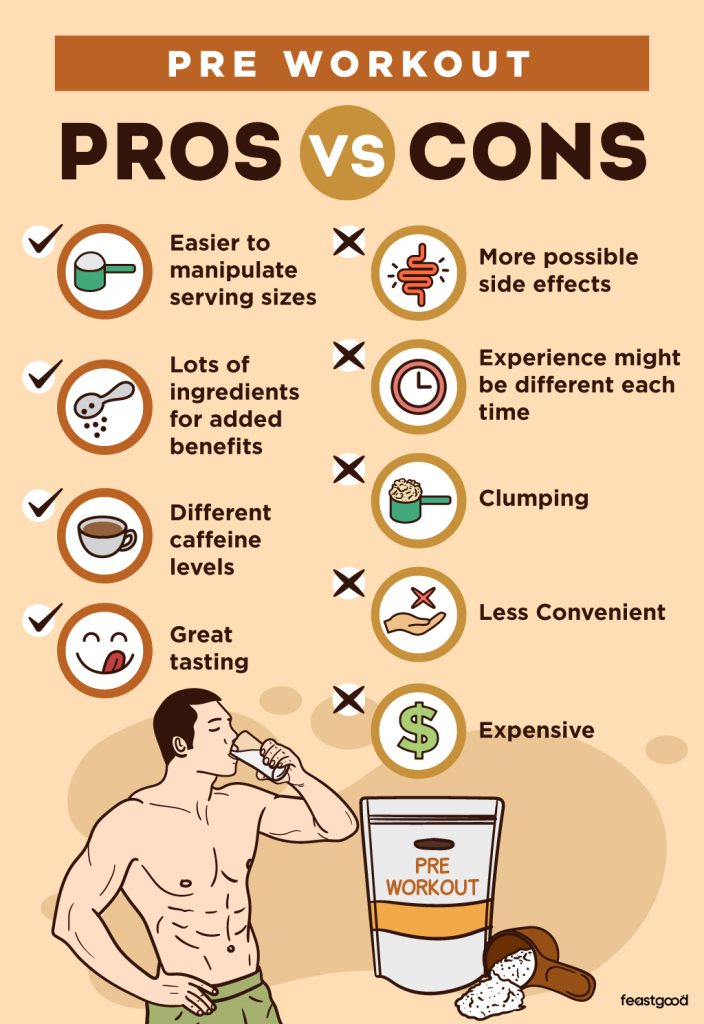
My Experiences Taking Pre-Workout Before A Workout
Experimenting with pre workouts and pre workout alternatives is one of my favourite pastimes. There is such a wide range of available formulas and flavours, you can find one that is relevant for each style of training that you do.
For instance, as a hockey player, some of our games would start at 10 or 11 pm. On these days, I took Magnum Opus or HD Muscle Pre HD Elite; both are caffeine-free formulas that gave me great physical energy, delaying the feeling of fatigue especially in my leg muscles, making me feel like I could play for hours.
Some of my favourite aspects of pre workouts are the pump and mental focus blends. Ingredients like citrulline and glycerol improve blood flow and nutrient uptake to the muscles which increase performance, but also make your muscles look bigger and fuller.
Ingredients like Lion’s Mane, Tyrosine, Alpha-GPC, and Huperzine boost neurotransmitter production in the brain and can give a tunnel-vision like focus in the gym.
Currently, I wake up at 6am to work out before my kids wake up and my day gets away from me. As a self-professed “not a morning person” who is also looking to lose a bit of body fat, my current go to is Magnum Fasted Cardio. It’s a great blend of energy and mental focus with some thermogenics added in.
Most importantly, the ingredients start working in under 5 minutes meaning I don’t have to get up even earlier just to take my pre workout.
Benefits
Easier to manipulate serving sizes
Because pre workouts come in a powdered form measured by a scoop, it is easier to take ¼ or ½ of a serving by simply measuring out a percentage of a scoop.
If you are new to pre workouts or are trying to stack your pre workout with other sources of caffeine in your day, taking ½ or ¼ scoop serving allows you to better manage your caffeine throughout the day.
Lots of ingredients for added benefits
Pre workout supplements typically contain anywhere from 5 to 15 ingredients to increase different aspects of performance like strength, power, energy and endurance. They also contain ingredients to increase muscle mass, boost testosterone, enhance blood flow, and control anxiety.
This comprehensive list of ingredients allows you to train harder, faster, and longer without adding extra caffeine which can negatively impact your sleep and your mood.
Different caffeine levels
A big benefit of pre workout supplements is that they are available in formulas with little to no caffeine for the lifter who trains late at night, already consumes other sources of caffeine throughout the day, or gets jittery or anxious with caffeine consumption.
On the other hand, there are some formulas that are very high in caffeine for any self-proclaimed “Stim Junkies” who want to feel insane energy and tunnel vision focus from their pre workout.
Pre workouts might also contain different sources of caffeine with different half-lives. This allows for a more prolonged energy that leaves the body slowly, helping to prevent a caffeine crash.
Great tasting
Each brand of pre workout comes in a variety of flavours, making it easy to find a formula that you like that also suits your taste. Alani Nu Pre Workout, for example, is available in ten different flavours, increasing the likelihood that you’ll find a flavour you enjoy.
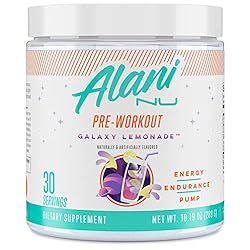
- Related: Alani Nu Pre Workout Review: Affordable, But Effective?
Technology has come a long way as far as artificial flavouring is concerned. When I started working in the supplement industry a decade ago, “great tasting” pre workouts were few and far between. For the most part, you mixed them with as little water as possible, plugged your nose, and slammed them back.
Nowadays, the technological advances in flavouring offer you delicious options from Mimosa to Bubble Gum Grape. If you can imagine it as a flavour, it probably exists.
Drawbacks
More Possible Side Effects (Nausea, Diarrhea, Skin Tingles, Anxiety)
More ingredients means more possible side effects and adverse reactions. Many ingredients are known to cause nausea including creatine, glycerol, and sodium bicarbonate.
Artificial sweeteners like sucralose can cause bloating, gas, or diarrhea. Furthermore, skin tingling is a known side effect of beta-alanine consumption.
Because the formulas are so varied and complex in their blends, if you are experiencing adverse side effects, it can be difficult to pinpoint the exact reason.
Experience Might Be Different Each Time
Because of the nature of a powder made from multiple different ingredients, it is impossible to know exactly how much of each ingredient you are getting in each scoop.
Some ingredients will be heavier and will settle towards the bottom, so unless you are shaking your tub of pre workout before you take each scoop, the specific blend of ingredients will change with each scoop you take.
As a result, the effect you feel from your pre workout might be inconsistent day to day, even if you take the exact same serving size.
Clumping
Two ingredients found in a lot of pre workouts, glycerol and citrulline, are known to be prone to clumping. These ingredients are hygroscopic, which means they attract water. Once a container of pre workout is opened, the hygroscopic ingredients will draw in moisture from the air causing the product to clump or harden.
While clumping does not affect the quality of the product, it can be a nuisance to try to break up the clumps and can have a negative effect on the overall pre workout experience.
Less Convenient
Some pre workout containers can be quite large making them inconvenient to carry around in a gym bag or while traveling. The powdered form also makes it difficult to measure out a few scoops at a time to take with you on the go or while traveling.
Because they are best taken with 8-10 ounces of water, and taste much better with cold water (from personal experience), you also have to make sure you have a bottle with the ounces clearly marked and a cold water source available for you to take your pre workout.
Expensive
Quality ingredients aren’t cheap, and more ingredients means more money leaving your wallet at the end of the day.
Pre workouts can range anywhere from $0.89 per serving (Mammoth Mass) to $3.00 per serving (Jym Pre Workout) but on average, a tub of pre workout will run you about $50.00.
Who Should Take Pre Workout?
Pre workout supplements are best for people who are struggling with the energy to start or get through their workouts, and are looking for additional benefits like strength, pump, power, or mental focus. Caffeine-free options should be used by people who want performance benefits but workout late in the day.
Final Thoughts – Which Is Better Caffeine Pills or Pre Workout?
- Pre workout supplements are the superior option, offering many different ingredients to help with strength, pump, power, energy and mental focus in one convenient dose.
- If you are on a tight budget or have a sensitive stomach, caffeine pills are inexpensive, more easily tolerated, and still increase performance.
Frequently Asked Questions
Is Taking Caffeine Pills The Same As Pre-Workout?
Both caffeine pills and pre workout supplements will offer the benefits of increased energy, strength, and endurance. However, pre workouts will be able to amplify these benefits due to a higher number of ingredients as well as provide additional benefits like increased pumps, power output, and mental focus.
Is It Safe to Take Caffeine Pills Before Workout?
It is absolutely safe to take caffeine pills before a workout. Caffeine pills contain 100mg-200mg of caffeine per capsule, the same as a small to medium sized cup of coffee. If you train within 5 hours of your bed time, taking caffeine pills before your workout might have a negative effect on your sleep.
When Is The Best Time To Take Pre Workout or Caffeine Pills?
Pre workouts are most effective if taken 30 to 60 minutes before your workout. Caffeine pills are best taken 60 minutes before your workout. Note that if you are working out in the evening (or within 5 hours of going to sleep), you might want to choose a caffeine-free pre workout formula to avoid affecting your sleep.
Other Pre Workout Resource
- Creatine vs Pre Workout
- Can You Mix Pre Workout With Creatine?
- Can You Take Pre-Workout Instead Of Coffee?
- Monster For Pre Workout: Pros, Cons, and Should You Do It?
- Red Bull For Pre Workout: Pros, Cons and Should You Do It?
- Is It Bad To Take Pre-Workout Every Day?
- Can You Take Pre-Workout On Keto?
- Does Pre-Workout Help You Lose Weight? What Science Says
References
Bruce, M., Scott, N., Lader, M. and Marks, V. (1986), The psychopharmacological and electrophysiological effects of single doses of caffeine in healthy human subjects.. British Journal of Clinical Pharmacology, 22: 81-87. https://doi.org/10.1111/j.1365-2125.1986.tb02883.x
Patrick S. Harty, Hannah A. Zabriskie, Jacob L. Erickson, Paul E. Molling, Chad M. Kerksick & Andrew R. Jagim (2018) Multi-ingredient pre-workout supplements, safety implications, and performance outcomes: a brief review, Journal of the International Society of Sports Nutrition, 15:1, DOI: 10.1186/s12970-018-0247-6
Danaher, J., Gerber, T., Wellard, R. M., & Stathis, C. G. (2014). The effect of β-alanine and NaHCO3 co-ingestion on buffering capacity and exercise performance with high-intensity exercise in healthy males. European journal of applied physiology, 114(8), 1715–1724. https://doi.org/10.1007/s00421-014-2895-9
Garlick PJ. The role of leucine in the regulation of protein metabolism. J Nutr. 2005 Jun;135(6 Suppl):1553S-6S. doi: 10.1093/jn/135.6.1553S. PMID: 15930468.
Richard A. Stecker, Patrick S. Harty, Andrew R. Jagim, Darren G. Candow & Chad M. Kerksick (2019) Timing of ergogenic aids and micronutrients on muscle and exercise performance, Journal of the International Society of Sports Nutrition, 16:1, DOI: 10.1186/s12970-019-0304-9
Mark A.TarnopolskyM.A. Tarnopolsky. 2008. Effect of caffeine on the neuromuscular system — potential as an ergogenic aid. Applied Physiology, Nutrition, and Metabolism. 33(6): 1284-1289. https://doi.org/10.1139/H08-121
Boulenger JP, Patel J, Post RM, Parma AM, Marangos PJ. Chronic caffeine consumption increases the number of brain adenosine receptors. Life Sci. 1983 Mar 7;32(10):1135-42. doi: 10.1016/0024-3205(83)90119-4. PMID: 6298543.
Mori K, Inatomi S, Ouchi K, Azumi Y, Tuchida T. Improving effects of the mushroom Yamabushitake (Hericium erinaceus) on mild cognitive impairment: a double-blind placebo-controlled clinical trial. Phytother Res. 2009 Mar;23(3):367-72. doi: 10.1002/ptr.2634. PMID: 18844328.
Shields, K.A., Silva, J.E., Rauch, J.T. et al. The effects of a multi-ingredient cognitive formula on alertness, focus, motivation, calmness and psychomotor performance in comparison to caffeine and placebo. J Int Soc Sports Nutr 11 (Suppl 1), P45 (2014). https://doi.org/10.1186/1550-2783-11-S1-P45
Wagner, D. (1999). Hyperhydrating with glycerol: Implications for athletic performance. Journal of the American Dietetic Association, 99(2), 207-212. doi:10.1016/S0002-8223(99)00049-8.
Wilson, P.B. ‘I think I’m gonna hurl’: A Narrative Review of the Causes of Nausea and Vomiting in Sport. Sports 2019, 7, 162. https://doi.org/10.3390/sports7070162
Eric T. Trexler, Abbie E. Smith-Ryan, Jeffrey R. Stout, Jay R. Hoffman, Colin D. Wilborn, Craig Sale, Richard B. Kreider, Ralf Jäger, Conrad P. Earnest, Laurent Bannock, Bill Campbell, Douglas Kalman, Tim N. Ziegenfuss & Jose Antonio (2015) International society of sports nutrition position stand: Beta-Alanine, Journal of the International Society of Sports Nutrition, 12:1, DOI: 10.1186/s12970-015-0090-y
About The Author

Jennifer Vibert is a Certified Strength and Conditioning Specialist, Nutrition Coach, and supplement store manager. She has a Bachelor of Kinesiology with a major in Fitness and Lifestyle and a minor in Psychology from the University of Regina. She is a Certified Nutrition Coach through Precision Nutrition, with a passion for helping clients learn the fundamentals of nutrition and supplementation in order to build healthy, sustainable habits.
Why Trust Our Content

On Staff at FeastGood.com, we have Registered Dietitians, coaches with PhDs in Human Nutrition, and internationally ranked athletes who contribute to our editorial process. This includes research, writing, editing, fact-checking, and product testing/reviews. At a bare minimum, all authors must be certified nutrition coaches by either the National Academy of Sports Medicine, International Sport Sciences Association, or Precision Nutrition. Learn more about our team here.
Have a Question?
If you have any questions or feedback about what you’ve read, you can reach out to us at [email protected]. We respond to every email within 1 business day.
